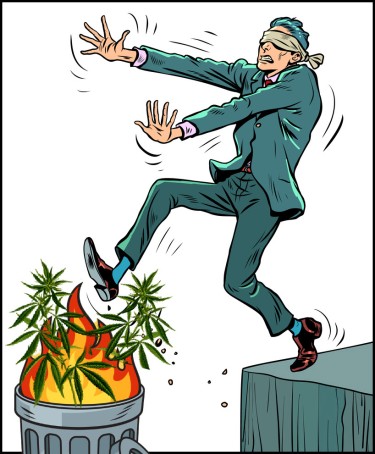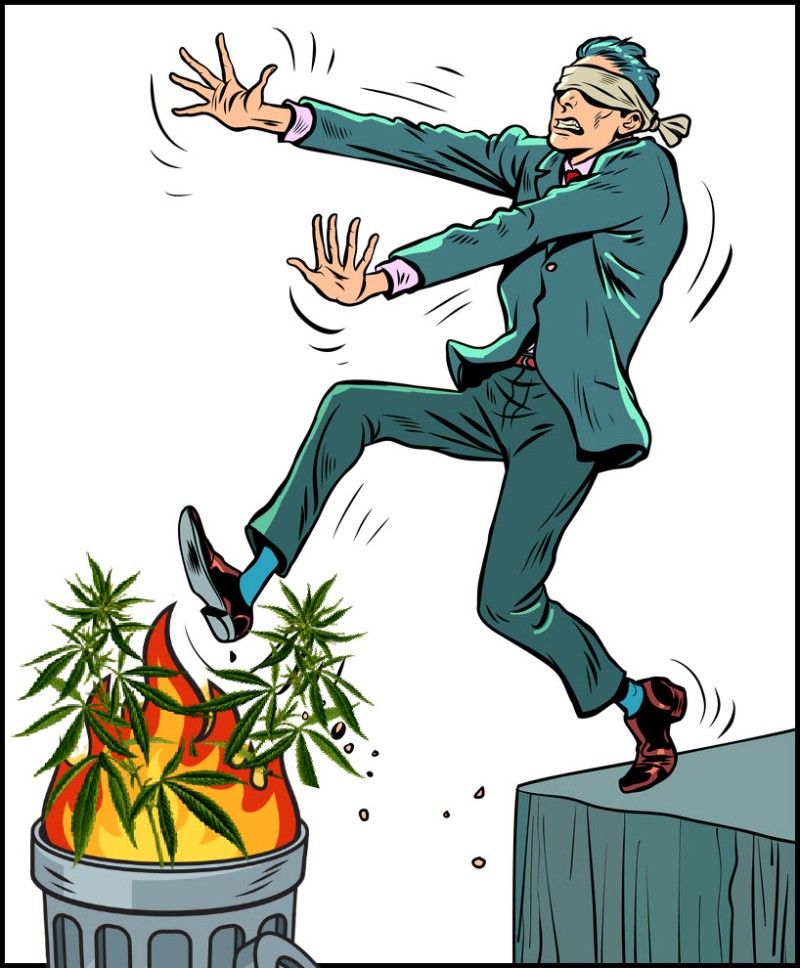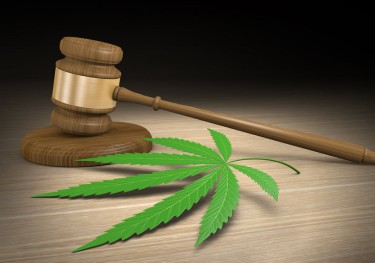
Mass Cannabis Businesses Lose Court Challenge to US Marijuana Ban, Supreme Court Next?
Rescheduling cannabis to a schedule 3 drug may or may not be off the board with the Supreme Court ruling that overturned a 52-year old decision on the Chevron Oil company. The cannabis industry was in a joyful mood at first and then followed by a panic attack as no one knew if the Chevron ruling was good or bad for possible cannabis legalization in America.
Ironically, with conservatives looking to regain power in America, the only real avenue left for full marijuana legalization, not just rescheduling, in America, may be that very same Supreme Court.
On Monday, July 1st, 2024, a federal judge dismissed a lawsuit filed by several Massachusetts cannabis businesses seeking to block the federal government from enforcing marijuana prohibition against their in-state activities. The plaintiffs argued that the federal ban is unconstitutional and sought to have marijuana reclassified or rescheduled altogether.
The lawsuit, led by industry leaders and advocacy groups, contended that the federal prohibition on marijuana violates the Constitution's Commerce Clause and infringes upon states' rights to regulate cannabis. They highlighted the significant business hurdles created by the ban, including issues with banking services, federal tax deductions, and increased public safety risks due to cash-only operations.
The US Court of Appeals for the District of Columbia Circuit upheld the lower court's decision, ruling that the plaintiffs failed to show a likelihood of success on the merits of their claims. The court emphasized that the federal government's classification of marijuana as a Schedule I drug is supported by scientific evidence and remains constitutional.
Judge Mark G. Mastroianni, appointed by former President Barack Obama, noted, "The relief sought is inconsistent with binding Supreme Court precedent and, therefore, beyond the authority of this court to grant." He also rejected the argument that the ban violated the businesses' due process rights, stating, "There is simply no precedent for concluding that the Plaintiffs enjoy a fundamental right to cultivate, process, and distribute marijuana."
Despite the setback, cannabis industry leaders and advocacy groups, represented by prominent litigator David Boies, have expressed their determination to continue fighting for federal marijuana reform. They plan to pursue reform through legislative and legal channels and may seek to bring their arguments before the Supreme Court.
The dismissal of this lawsuit underscores the ongoing legal and political complexities surrounding marijuana regulation in the United States. As more states move to legalize cannabis for medical and recreational use, the tension between state and federal laws remains a significant hurdle for the industry. This legal battle highlights the broader implications of marijuana's status as a Schedule I drug under the Controlled Substances Act (CSA) and the challenges of aligning state and federal policies.
The Current Landscape of Marijuana Regulation
The classification of marijuana as a Schedule I substance under the CSA places it in the same category as heroin and LSD, indicating a high potential for abuse and no accepted medical use. This designation has been a contentious point for decades, with advocates arguing that it is outdated and does not reflect the current scientific understanding of marijuana's medical benefits.
At the state level, marijuana laws vary widely. As of 2024, 38 states have legalized medical marijuana, and 23 have approved recreational use. These state-level legalizations create a complex patchwork of regulations that complicate enforcement and compliance for businesses operating within legal frameworks at the state level but in conflict with federal law.
Challenges Faced by Cannabis Businesses
Cannabis businesses face unique challenges due to the federal prohibition. One of the most significant issues is access to banking services. Because marijuana is illegal at the federal level, many banks are unwilling to provide services to cannabis businesses, forcing them to operate on a cash-only basis. This not only increases the risk of theft and other crimes but also complicates financial management and compliance with tax regulations.
Additionally, the federal ban prevents cannabis businesses from claiming standard business tax deductions, as outlined in Section 280E of the Internal Revenue Code. This section prohibits deductions for businesses involved in the trafficking of controlled substances, which significantly increases the tax burden on cannabis businesses compared to other industries.
Public safety is another concern. Cash-only operations attract criminal activity, posing risks to employees and customers. The inability to access banking services also means that cannabis businesses cannot easily secure loans or lines of credit, hindering their ability to expand and invest in growth.
The Case for Rescheduling Marijuana
Advocates for rescheduling marijuana argue that the current classification is not supported by scientific evidence and fails to recognize its medical benefits. Research has shown that marijuana can be effective in treating a range of conditions, including chronic pain, epilepsy, and multiple sclerosis. Rescheduling would acknowledge these medical uses and facilitate further research into the therapeutic potential of cannabis.
Rescheduling could also alleviate some of the business challenges associated with the current federal prohibition. It would allow cannabis businesses to access banking services, claim tax deductions, and operate more safely and efficiently. Furthermore, it would reduce the legal and regulatory conflicts between state and federal laws, providing a clearer and more consistent framework for the industry.
The Road Ahead
The dismissal of the Massachusetts lawsuit is a setback for cannabis businesses seeking immediate relief from the federal ban, but it is unlikely to be the end of the fight for marijuana reform. Industry leaders and advocacy groups are determined to continue their efforts through both legislative and legal avenues. They may seek to bring their case before the Supreme Court, hoping for a landmark decision that could reshape marijuana policy in the United States.
THE SURPEME COURT GIVETH AND TAKETH AWAY, READ ON...
HOW DOES A CHEVRON OIL CASE CAUSE CHAOS IN THE MARIJUANA INDUSTRY?






